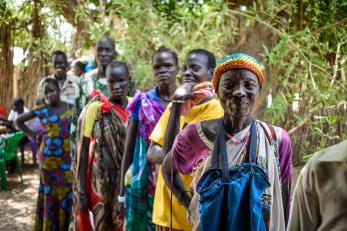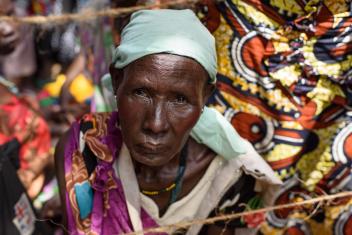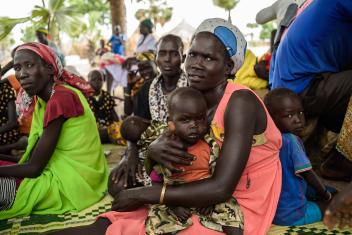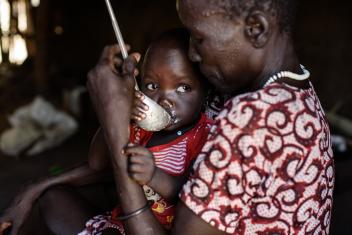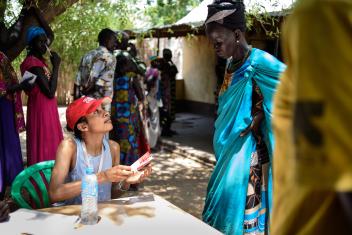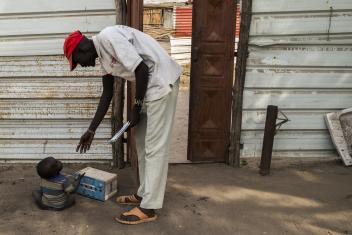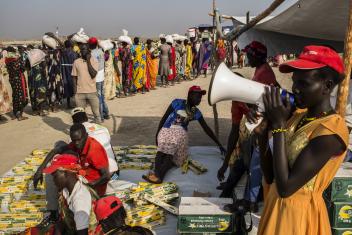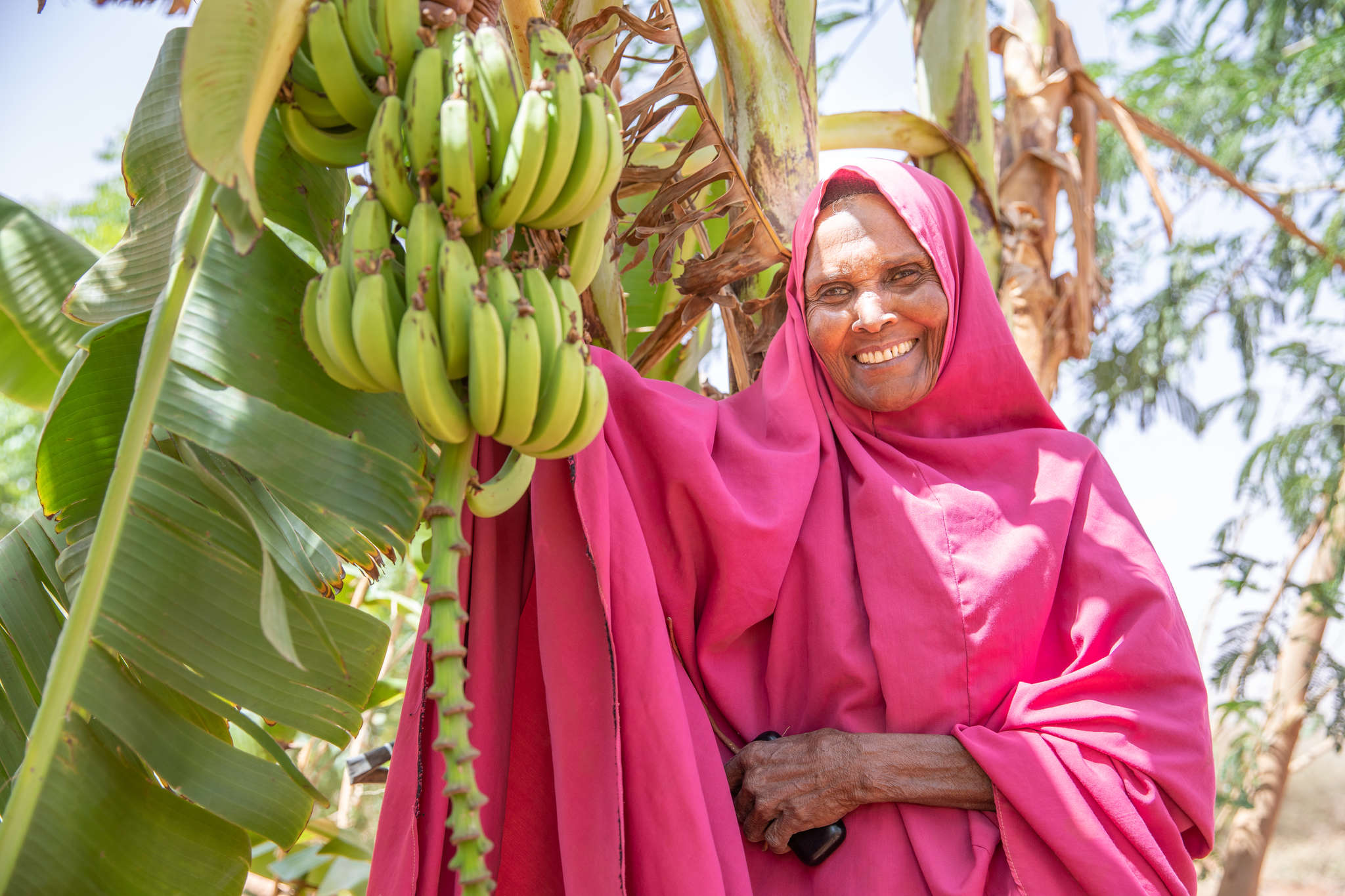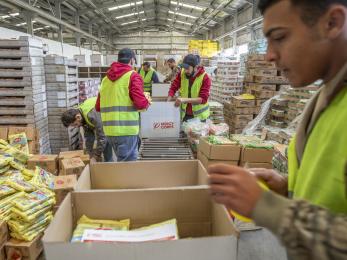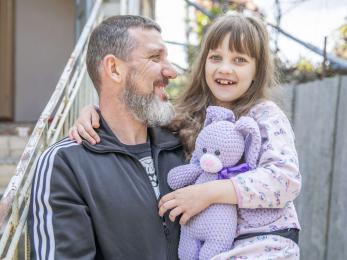Why we're not giving up on South Sudan
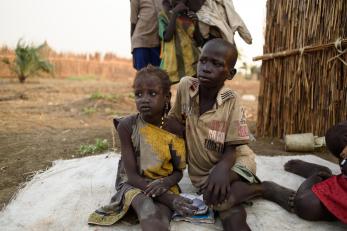
I’m on a dusty road just outside our Mercy Corps offices in Nyal, South Sudan. It’s hot, and my skin is burning under the midday sun. As I look around, I replay the same sentence over and over in my head: “A better world is possible.” But I’m finding it hard to keep that focus.
It can be tough to remain hopeful and optimistic when you are faced with so much need. Lines of people have formed outside our office — families who have walked five or six hours to receive a cash distribution we are running that day. They will receive the equivalent of £12 every two months so they can feed their families during South Sudan’s lean season.
They are vulnerable, innocent people who didn’t ask for war, but are caught up in a conflict that threatens their very existence.
Outside the office, I meet Thulnaath, who left her village at 3 a.m. with her 6-month-old baby and 6-year-old daughter, Rebecca. Rebecca is quiet and listless, so I ask if she is alright. Her mom says she hasn’t eaten today and won’t eat until they get home again.
“As a mother, we are suffering a lot because of the famine in the area,” Thulnaath tells me. “When the child is crying and you have no food to give, it hurts you as a mother.”
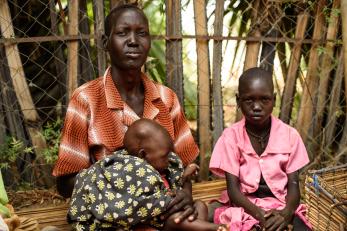
For anyone looking on, it may seem strange that we have the power to decide if someone is able to eat today or not. But in South Sudan, where 1.7 million people are experiencing extreme levels of hunger, our interventions can mean the difference between life and death.
Mercy Corps is providing cash payments to help families cope with the crisis the country is facing, but the cash is just a starting point. Mercy Corps is also providing fishing and vegetable kits, including seed and crop kits so that families who have had to flee their homes because of conflict are able to recover and build towards the future.
The conflict in South Sudan began in December 2013, and since then the situation worsens day by day. Cholera outbreaks occur frequently because there is not enough clean water or hygiene supplies, and there is also rampant hyperinflation. A meal that would have cost 25 South Sudanese pounds two years ago costs 500 today. Regularly missing one or two meals is a dangerous pattern that can quickly lead to malnutrition, or worse. South Sudan has one of the highest child mortality rates in the world.
I step to the side, taking shade under a mango tree. There I start to wonder: In these dire moments when peace seems so distant, is it enough to believe a better world is possible?
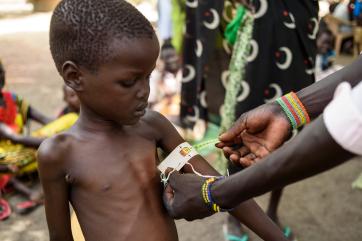
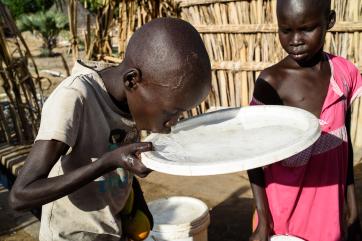
Mercy Corps has been working in South Sudan since 1995. Last year, when horrific attacks occurred in the capital, Juba, and many organisations left, Mercy Corps chose to stay. When South Sudan topped Afghanistan as the most dangerous place in the world for aid workers to do their jobs, we persevered.
Over the last few months, in response to the outbreak of famine and widespread threat of starvation across the country, we have increased our staff numbers to 165.
We are not giving up on South Sudan. We are not going anywhere.
It is this commitment that makes me so proud of our work in this country. The story of Mercy Corps in South Sudan isn’t just about the people we are helping — it’s also about our heroic team members who are the backbone of our work.
Our team members face intense difficulties and have to walk a tightrope to remain impartial in the midst of a civil war. Almost every South Sudanese staff member I speak with has family that has fled for safety and food. Perhaps they are now in Uganda, or in refugee settlements in Kenya.
Fuel is expensive. Communities are hard to reach — sometimes only by wading through waist-deep swamps. Every day, their own security is at risk. Despite this, our team members have stayed here in South Sudan, committed to supporting their country.
The work we do there is built upon their commitment and optimism. Many have not given up hope that their families will be able to return one day in the future.
When I see our team’s commitment and passion, it makes me believe in the power of possibility.
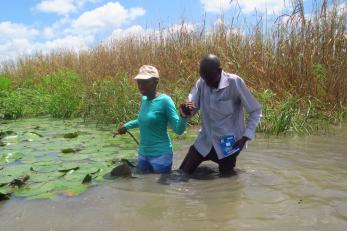
I also feel it when I see the impact we have on the lives of vulnerable people — people like Bayak and Linydit, sisters-in-law who are in their eighties. One is blind, and the other partially blind. They walked hours today to reach the cash distribution in Nyal.
They tell of their village being burned in 2015, and how they are living under metal sheeting. But they also tell me that the cash they are receiving will make a big difference to them.
“We are going to buy soup and slippers and eat dried fish,” Linydit says.
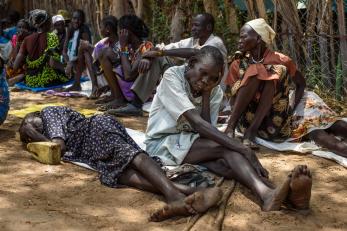
As I prepare to leave South Sudan, I’m reminded of one of my favourite Nelson Mandela quotes: “Our human compassion binds us the one to the other — not in pity or patronisingly, but as human beings who have learnt how to turn our common suffering into hope for the future.”
It is this opportunity — to help people in South Sudan and around the world survive and build a stronger future — that drives Mercy Corps to continue this work, even in the darkest of circumstances.
We can see a better world. We know it’s there, and we want everyone else to see it, too.
